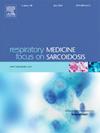The interplay of plant-based antioxidants, inflammation, and clinical outcomes in asthma: A systematic review
IF 3.5
3区 医学
Q2 CARDIAC & CARDIOVASCULAR SYSTEMS
引用次数: 0
Abstract
Background
Asthma is a chronic inflammatory disease and a leading cause of disability, posing a huge economic and social burden. Plant-based antioxidants have the potential to block proinflammatory pathways and protect against oxidative damage, which could improve asthma management.
Objective
This review examines the role of plant-based antioxidants as adjuvant therapy on inflammatory markers and clinical outcomes of adults with asthma.
Methods
Digital databases, including Scopus, MEDLINE, EMBASE, CINAHL, PsycINFO, and Cochrane Airway Group's Specialized Register of Trials, were searched. Two independent authors performed initial and full-text screening of identified papers. The criteria for study inclusion and exclusion were predefined. Two authors independently performed data extraction and risk of bias as per the PRISMA checklist.
Results
After full-text screening, nine randomized controlled trials were included in the final review. Seven of the included studies highlighted the efficacy of plant-based antioxidants in modulating the inflammatory cytokines in asthmatics. The benefits of antioxidants were also observed for improving oxidative status, lung functioning, and airway inflammatory markers. Furthermore, the overall quality of asthmatic patients’ lives was improved with fewer exacerbations such as night coughs and wheezing. Despite having some limitations, the overall risk of bias was low in this review.
Conclusion
The review indicated that plant-based antioxidants could have adjuvant beneficial effects in the management of asthma inflammatory markers, which may help improve asthma-related clinical outcomes. However, due to the small number of study subjects, further research is required on the effect of plant-based antioxidants on asthma-inflammatory markers and clinical outcomes.
植物抗氧化剂、炎症和哮喘临床结果的相互作用:一项系统综述。
背景:哮喘是一种慢性炎症性疾病,是致残的主要原因,造成巨大的经济和社会负担。植物性抗氧化剂有可能阻断促炎途径,防止氧化损伤,从而改善哮喘管理。目的:本文综述了植物性抗氧化剂作为辅助治疗对成人哮喘炎症标志物和临床结果的作用。方法:检索数字数据库,包括Scopus、MEDLINE、EMBASE、CINAHL、PsycINFO和Cochrane气道集团的专业试验注册。两位独立作者对已确定的论文进行了初步和全文筛选。研究纳入和排除的标准是预先确定的。两位作者按照PRISMA检查表独立进行数据提取和偏倚风险。结果:经过全文筛选,最终纳入9项随机对照试验。纳入的研究中有七项强调了植物抗氧化剂在调节哮喘患者炎症细胞因子方面的功效。抗氧化剂的好处也被观察到改善氧化状态,肺功能和气道炎症标志物。此外,哮喘患者的整体生活质量得到改善,夜间咳嗽和喘息等恶化情况减少。尽管存在一些局限性,但本综述的总体偏倚风险较低。结论:植物性抗氧化剂对哮喘炎症标志物的管理具有辅助有益作用,可能有助于改善哮喘相关的临床结局。然而,由于研究对象较少,需要进一步研究植物性抗氧化剂对哮喘炎症标志物和临床结果的影响。
本文章由计算机程序翻译,如有差异,请以英文原文为准。
求助全文
约1分钟内获得全文
求助全文
来源期刊

Respiratory medicine
医学-呼吸系统
CiteScore
7.50
自引率
0.00%
发文量
199
审稿时长
38 days
期刊介绍:
Respiratory Medicine is an internationally-renowned journal devoted to the rapid publication of clinically-relevant respiratory medicine research. It combines cutting-edge original research with state-of-the-art reviews dealing with all aspects of respiratory diseases and therapeutic interventions. Topics include adult and paediatric medicine, epidemiology, immunology and cell biology, physiology, occupational disorders, and the role of allergens and pollutants.
Respiratory Medicine is increasingly the journal of choice for publication of phased trial work, commenting on effectiveness, dosage and methods of action.
 求助内容:
求助内容: 应助结果提醒方式:
应助结果提醒方式:


